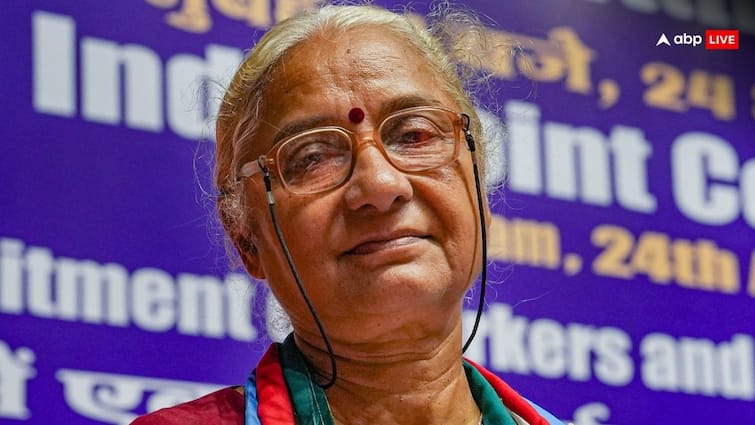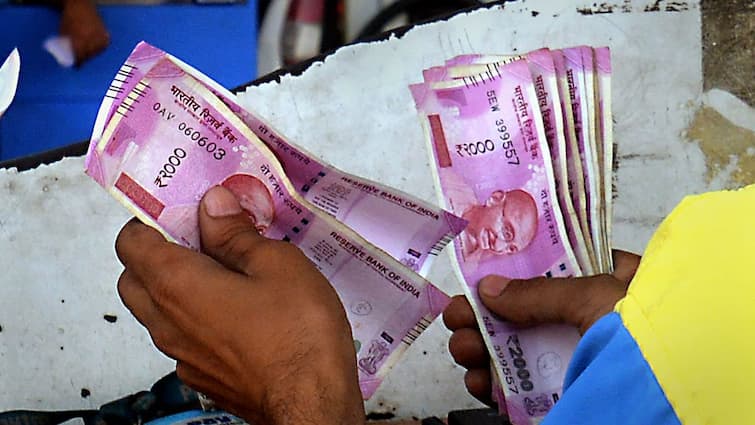RBI MPC Keeps Repo Rate Unchanged 6 Point 5 Percent What This Means For Economy Managing Inflation Top Priority Abpp

The Reserve Bank of India (RBI) has kept the repo rate unchanged at 6.5 percent for the fifth consecutive time, demonstrating confidence in the Indian economy’s resilience amid global uncertainties. The Indian economy continues its growth trajectory, bolstered by strong domestic demand and a notable improvement in the manufacturing sector. In a move benefiting consumers, the RBI has expanded the UPI transaction limit for sectors like hospitals and educational institutions from ₹1 lakh to ₹5 lakh.
The repo rate is a critical financial instrument used by the RBI to control inflation. It represents the rate at which banks borrow from the RBI. When inflation is high, the RBI may increase the repo rate, making loans more expensive for banks, which in turn pass on the cost to customers, thereby reducing money circulation and inflation.
Navigating Through Inflation and Economic Growth
There will be no change in the monthly instalment (EMI) on various loans, including house, vehicle. The central bank has has revised its economic growth forecast for the fiscal year 2023-24 from 6.5 percent to 7 percent, while expecting the Consumer Price Index (CPI) based retail inflation at 5.4 percent. The Monetary Policy Committee (MPC) of the Reserve Bank was given the task to keep retail inflation between 2 percent to 4 percent by March 31, 2026, but this does not seem to be happening. The high inflation rate is a threat to the economy.
The Increasing Kitchen Budget
The inflation surge, particularly in food and fuel prices, has strained household budgets. Essentials like tea, beans, edible oil, and vegetables like tomatoes and onions have seen significant price hikes. Inflation, a global issue, has seen tomato prices soar by up to 230 percent month-on-month in July, while prices of grains like rice have increased by 13 percent.
Need to Cut Oil Prices
One of the primary factors contributing to inflation is the price fluctuations of oil, encompassing both fuel and culinary oil. In contemporary times, there has been a notable increase in the proportion of our earnings allocated towards expenditures related to petroleum. The taxation imposed on petroleum goods, specifically in the form of excise duty and value-added tax (VAT), ranges from approximately Rs 35 to Rs 50 per litre. If a reduction in this factor occurs, it is expected that the prices of these products will decrease, leading to a subsequent impact on the overall price levels of various goods and services.
In reality, the government generates revenue by the imposition of taxes on gas and diesel, thereafter allocating the funds acquired towards various welfare initiatives. In order to effectively manage inflation, it is imperative for the government to decrease its reliance on the revenue generated from these two sources. In addition to tax income, the government has the capacity to generate revenue from alternative sources. Currently, the government’s tax revenue collection is commendable. Conversely, should the government desire to do so, it possesses the ability to augment tax income through the implementation of measures such as raising corporate taxes and imposing wealth taxes. Furthermore, it is imperative to meticulously observe the oscillations in crude oil prices.
Food Inflation And Agricultural Focus
There should be a decrease in food prices, with a particular emphasis on augmenting the availability of agricultural commodities. Inflation arises when the aggregate demand for a certain item or service surpasses the existing supply. The relationship between the cost of supply and the quantity supplied plays a crucial role in shaping the dynamics of inflation from the supply side. The increasing cost of diesel, along with growing prices of gasoline and fertilisers, is causing concern within the sector due to inflationary pressures. It is important to acknowledge that the consumption of costly food poses a significant risk to the overall well-being of the populace. In order to effectively manage inflation in a sustainable manner, it is imperative to prioritise agricultural production. The pricing of products within the Fast-Moving Consumer Goods (FMCG) industry has experienced a significant and rapid increase, thereby impacting a substantial number of retailers and a vast client base.
It is imperative for governments to persistently scrutinize their trade policy in order to mitigate food inflation and establish reserves for perishable commodities like tomatoes, onions, and potatoes that are prone to price volatility. In order to facilitate price stability for farmers during periods of surplus, the imperative lies in the building of cost-effective cold storage infrastructure, utilising solar energy. This measure will enable the government to mitigate pricing fluctuations during periods of economic downturn. Alternatively, the company may choose to implement a systematic stock release strategy during periods of strong demand, such as the festive season.
Addressing Wider Impact Of Inflation
Inflation poses significant challenges for the common people, potentially pushing them towards poverty. What measures may be taken to mitigate the impact of inflation on individuals at present? The question is of urgent relevance in the current circumstances. Managing inflation effectively should be a top priority for the government. The International Monetary Fund (IMF) predicts a 6.1 percent growth rate for the Indian economy in the next fiscal year, but inflation could hinder this progress. If inflation spirals out of control, the RBI may have to increase interest rates, impacting India’s GDP growth and underlining the critical need to address inflation and its potential consequences.
The author is Associate Professor, Atal Bihari Vajpayee School of Management and Entrepreneurship, at Jawaharlal Nehru University (JNU), New Delhi.
[Disclaimer: The opinions, beliefs, and views expressed by the various authors and forum participants on this website are personal and do not reflect the opinions, beliefs, and views of ABP News Network Pvt Ltd.]




